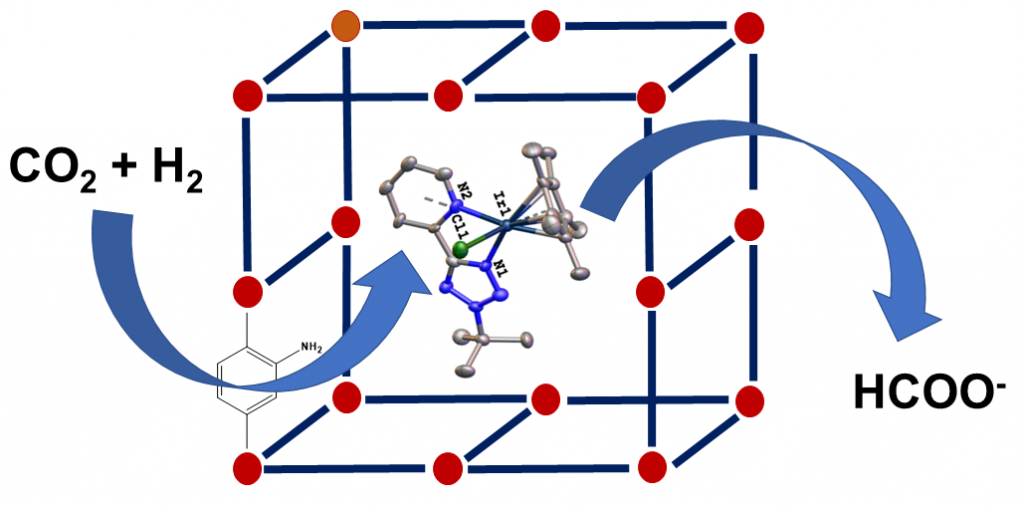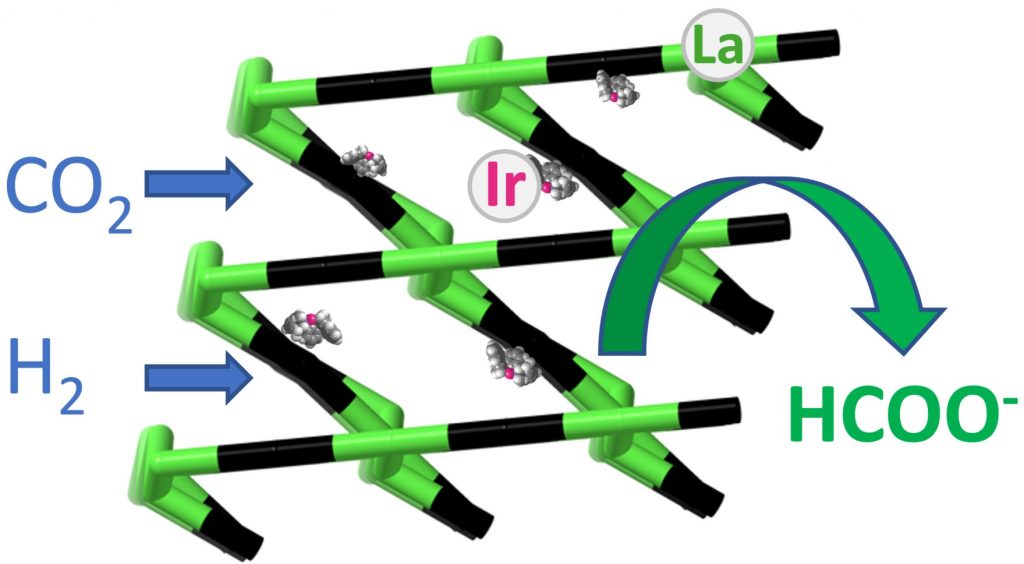About the group
Our research focuses on the development of novel porous materials for application as support materials in catalysis, sensing, drug delivery and biomedical applications. Metal-Organic Frameworks (MOFs), which are highly crystalline porous materials are at the core of our research. Current research involves the design of materials which can capture and convert carbon dioxide to formic acid and methanol. In our approach, we explore both chemical and biological routes to convert greenhouse gas to high-value chemicals. Our research leverages on the unique properties of MOFs to advance catalytic science and drug delivery. This research is funded by the European Union and the African Academy of Sciences

Highlights Of Our Recent Research

The half-sandwich(tetrazolylpyridyl)iridium(III) complex show improved catalytic activity towards hydrogenation of carbon dioxide to formate upon supported in a mesoporous m-UiO-66 MOF.

The metal-organic framework functionalised with Ru(II) complex showed high photocatalytic activity for the conversion of CO2 into syn gas.

Two isostructural 2D MOFs containing Pd(II) immobilised on dipyridyl sites exhibits high catalytic activity for carbon dioxide conversion to formate. These MOF catalysts are robust under the optimal conditions employed in this work and could be recycled four times without significant loss in the structural integrity of the MOFs

Cyclometalated with platinum-group metals the La-MOF JMS-5 with a bipyridyl dicarboxylate linker gave a TON of over 5000 for Ír(III) and over 4000 for Rh(III) in the catalytic hydrogenation of carbon dioxide to formate without any signs of nanoparticles. Full characterization was performed including XPS, TEM, PXRD and gas sorption. Single crystal diffraction revealed an unusual rod-MOF topology.

